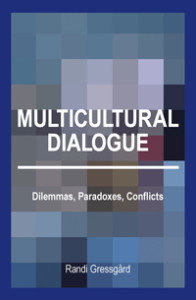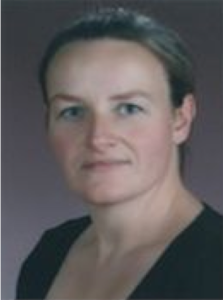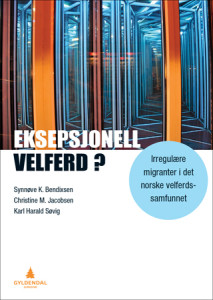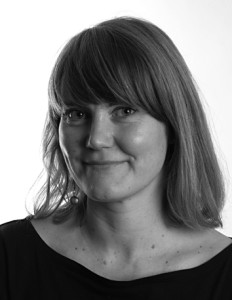Exploring Diversity SEMINAR SERIES
WORKSHOP
“Transnational(ism)” in IMER-research – Networks, boundaries and mobilisation –
In recent years there has been a general increase in empirical research and theoretical engagement with transnationalism and transnational networks. In regard to the field of international migration and ethnic relations, transnationalism has been hotly debated and a central concern for research. Some approaches have focussed on the more manifest, organizational aspects of relations between sending and receiving countries, such as studies of remittances, migration patterns etc. Others have focussed on phenomenological dimensions; transnational social imaginaries, the stretching of lifeworlds in time and in space. Another division is between research following a more traditional Diaspora-approach, exploring the networks and transactions between “mother”- and recipient countries, and research focussing on migrants’ “double consciousness” as a more persistent dimension in the migrant situation. Both approaches include the meaning and the politics of borders and boundaries, but in different ways. Whereas the first approach tends to centre nation and ethnicity as imperative identity-dimensions in transnational mobilisation, the second approach opens other venues for research on transnational imagination and action. This second approach is perhaps more clearly envisioned in Paul Gilroys work on the Black Atlantic. Gilroy’s transnationalism is one that looks beyond ethnicity and nation as identity-construction dimensions, and focuses on the potential transnational solidarity stemming from being reduced to the other within the nation-state framework. If the first, and traditional, transnationalism approach focuses on the positive aspects of national and ethnic identities, the second approach departs from the negative aspects of the very same identities. These different approaches can again be seen to lead to different research focuses and also to different forms of political mobilisation.
This workshop brings together scholars who work in the intersection between transnationalism research and IMER-research. The purpose is to critically discuss what is meant by the terms “transnational” and “transnationalism”, and to provide some theoretical, methodological and empirical guidelines to research. How do we distinguish between “transnational” and “postnational”, how is the conceptualisation of transnational(-ism) linked to debates in globalisation theory, and how do we incorporate material, political and cultural aspects in research on transnationalism and migration?
IMER-Bergen has at present three research projects in the field of transnationalism research. Two of these focus on transnational mobilisation among young adults of ethnic minority background, the third focuses on different forms of transnational relations and mobilities, their spatial logics and the politics of space/place.
Exploring Diversity SEMINAR SERIES
WORKSHOP program
“Transnational(ism)” in IMER-research – Networks, boundaries and mobilisation –
| Tid : | Mandag 17 Desember 2007, 10.00-17.00 |
| Sted : | UiB, Lauritz Meltzers hus, 9 etasje, Seminarrom. |
| 10.00 | Mette Andersson, UiB |
| ” Begrep og forskningsfokus” | |
| 10.30 | Thomas Olesen, University of Aarhus |
| “The Porous Public” | |
| 11.00 | Spørsmål og diskusjon |
| 11.30 | Pause |
| 11.45 | Garbi Schmidt, Danish National Institute of Social Research |
| “Transnational or Universal? Muslim Identity Forming Across National Boundaries” | |
| 12.15 | Spørsmål og diskusjon |
| 12.45 | Lunsj |
| 13.45 | Øivind Fuglerud, UiO |
| “Transnational practises and diasporic identification: Lessons from the Tamil case” | |
| 14.15 | Spørsmål og diskusjon |
| 14.45 | Pause |
| 15.00 | Elisabeth Eide, UiO |
| “Caricatures turning transnational – and landing in national contexts” | |
| 15.30 | Spørsmål og diskusjon |
| 16.00 | Generell diskusjon (slutt 17.00) |
The workshop is organized by Mette Andersson, Associate Professor, Dept. of Sociology , UiB and Knut Hidle, Research Director, Agderforskning
Exploring Diversity SEMINAR SERIES
WORKSHOP
“The Crystallisation of National Identities in Contemporary Europe”
Open IMER/UiB Workshop
This workshop will deal with a trend in many European states which may be referred to with labels such as the ‘crystallisation’ of national identities or neo-nationalism.
The workshop will examine questions like: is there a particular encompassment of globalisation by the European nation-states, generating neo-nationalism or the crystallisation of national identities? Are neo-nationalism and crystallisation inherent results emanating out of emerging European state-forms influenced by globalisation? Is the historical European national diversity generating something specific European which manifests itself in these contemporary phenomena? Or are there, at the level of generation, a restructuration of political universes and modes of citizenship where neo-nationalism and/or crystallisation of national identities are concomitants? If so, which are the key structurating forces? What (new) (world) order would such neo-nationalism and/or crystallisation imply? To whom would it give more power and legitimacy?
Workshop programme :
Wednesday September 17. :
13.15 – 16.30
1. Yngve Lithman: Welcome and Introduction
2. Bruce Kapferer: Globalization and the Nation State.
3. Mette Andersson: The social imaginary of first generation Europeans.
Thursday September 18. :
09.15 – 12.15
1. Andre Gingrich: “National Identity Inc.”: Uncertainties, politics of emotions, and the fading of European visions.
2. Sigalit Ben-Zion: The problem of the crystallization of national identity in Europe in the post-multiculturalism era.
3. Yngve Lithman: Nationalism, Chrystallization: observations from Scandinavia.
13.15 -17.00
1. Christian Joppke: Changes in the conceptual of citizenship in contemporary Europe: Liberalism and the nation.
2. Elisabeth Ivarsflaten: The anti-racism norm in Western European immigration politics: Why we need to consider it and how to measure it.
3.Hakan Sicakkan: Tracing the de-crystallization of European national identities: humanitarian sovereignty sharing, alternative public spaces and invented belongings.
WORKSHOP
Migration in Nordic societies: Recent perspectives
The workshop is organised as a collaboration between IMER Bergen and the Department of Sociology, UiB. It is open for all interested researchers and students.
Program:
09.00: Welcome by Lise Widding Isaksen (Dept. of Sociology, UiB).
09.15: Helle Stenum (Danish Institute for International Studies, Copenhagen): “Bane and Boon, Gains and pains; Dos and Don’ts. Moral economy and flexible citizens in au pair migration”.
09.45: Coffee break.
10.00: Lise Widding Isaksen (Dept. of Sociology, UiB): “Domestic Workers and Political Agency”.
10.30: Mariya Bikova (Dept. of Sociology, UiB): “Au pair Migration Norway – Philippines”.
11.00: Discussion. Discussant: Christine M. Jacobsen (IMER Bergen and Dept. of Social Anthropology, UiB).
12.00 – 13.00: Lunch break.
13.00: Anna Gavanas (Institute for Future Studies, Stockholm): “Migration, in/formalization and the expanding domestic service sector in Sweden”.
13.30: Vera Galindabaeva (European University, St. Petersburg): “The Effects of Rural-Urban Migration on Transformation of Child Care Arrangemenst in Buryat Rural Families in Post-Soviet Russia”.
14.00: Coffee break.
14.15: Synnøve Bendixsen (IMER Bergen and Uni Rokkan Centre): Ethiopian Irregular Migrants’ demonstration in Oslo Cathedral.
14.45 -15.30: Discussion. Discussant: Lise Widding Isaksen (Dept. of Sociology, UiB).
Friday 7 October, 09.00-15.30.
Faculty of Law, Seminar room 1, Magnus Lagabøtesplass 1.
WORKSHOP POSTER
 As cross-cultural migration increases democratic states face a particular challenge: how to grant equal rights and dignity to individuals while recognizing cultural distinctiveness. In response to the greater number of ethnic and religious minority groups, state policies seem to focus on managing cultural differences through planned pluralism. This book explores the dilemmas, paradoxes, and conflicts that emerge when differences are managed within this conceptual framework. After a critical investigation of the perceived logic of identity, indicative of Western nation-states and at the root of their pluralistic intentions, the author takes issue with both universalist notions of equality and cultural relativist notions of distinctiveness. However, without identity is it possible to participate in dialogue and form communities? Is there a way out of this impasse? The book argues in favor of communities based on nonidentitarian difference, developed and maintained through open and critical dialogue.
As cross-cultural migration increases democratic states face a particular challenge: how to grant equal rights and dignity to individuals while recognizing cultural distinctiveness. In response to the greater number of ethnic and religious minority groups, state policies seem to focus on managing cultural differences through planned pluralism. This book explores the dilemmas, paradoxes, and conflicts that emerge when differences are managed within this conceptual framework. After a critical investigation of the perceived logic of identity, indicative of Western nation-states and at the root of their pluralistic intentions, the author takes issue with both universalist notions of equality and cultural relativist notions of distinctiveness. However, without identity is it possible to participate in dialogue and form communities? Is there a way out of this impasse? The book argues in favor of communities based on nonidentitarian difference, developed and maintained through open and critical dialogue.
Randi Gressgård is a Senior Researcher at the Centre for Women’s and Gender Research (SKOK) at the University of Bergen. She is also affiliated with the research unit International Migration and Ethnic Relations (IMER) in Bergen. Her research interests focus on minority research, gender studies, and philosophy of science. Her publications include Fra identitet til forskjell [From Identity to Difference] (Spartacus/Scandinavian Academic Press, 2005) and Kjønnsteori[Gender Theory] (co-ed., Gyldendal Akademisk, 2008). Read more…
Religious traditions and muslim youth in europe
Christine M. Jacobsen (UiB/Uni Rokkansenteret)
Jonas Otterbeck (University of Lund)
Synnøve Bendixsen (SKOK/Uni Rokkansenteret)
A major question regarding Islam in Europe concerns the religiosity of “Muslim youth” – a category currently epitomizing both the fears and hopes of multicultural Europe. At this seminar, researchers working in 3 European countries look at how Islamic traditions are engaged and reworked by young people, born and educated in European societies, and discuss the modes of religiosity that are shaped in a context of international migration, globalization, and secular modernity.
Christine M. Jacobsen launches her new book Islamic Traditions and Muslim youth in Norway in conversation with Jonas Otterbeck, the author of Samtidsislam: unga muslimer i Malmö och Köpenhamn and Synnøve Bendixsen, the author of “It’s like doing SMS to Allah” Young Female Muslims Crafting a Religious Self in Berlin.
Seminar and book launch.
Organised in collaboration with Department of Social Anthropology, UiB.
Time: Friday 21 January, 13.15-16.00.
Venue: Uni Rokkansenteret, Nygårdsgaten 5, 6. etg (5th Floor)
IMER Abroad: PROVIR Seminar – Precarious migrants and access to welfare: Between policy, law and practice
This workshop will discuss the legal and experienced dilemmas found in the encounter between migrants living in a legally precarious situation and the welfare state in which they reside. Participants will present ongoing empirically based research on migrants’ access to welfare in policy, law and practice in various European countries. They will also discuss the particular position of youth and children in vulnerable situations. The program is available here.
BSRS 2014 Governance to meet Global Development Challenges
Welcome to BSRS2014!
The theme for BSRS2014 is Governance to meet Global Development Challenges. The event will take place from June 23rd to July 4th 2014 at the University of Bergen. Please find information about the courses, application form and other activities at the menu to your right side.
One of the courses is and IMER/SKOK PhD course.
Read more at:
http://www.uib.no/rs/bsrs/programme/bsrs-2014-governance-to-meet-global-development-challenges
Mistillitens migrasjon: Europeisk sør-nord mobilitet i kjølvannet av krisa
Tema for innlegget er den nye Europeiske sør-nord migrasjonen. Den empiriske analysen er basert på dybdeintervjuer med noen av dem som har reist fra Spania til Norge etter kriseåret 2008. Innlegget vil belyse hvordan sør-nord migrasjonen i kjølvannet av krisa er mer enn en desperat flukt fra arbeidsledighet i hjemlandet. Den vidtrekkende mistilliten til det politiske systemet og følelsen av en dyptgripende håpløshet i hjemlandet er viktige migrasjonsfaktorer i tillegg til jobbmuligheter for dem som kommer til Norge.
Susanne Bygnes (phd) er postdoktor ved universitetet i Bergen. Hun leder det fireårige prosjektet Labour Migration in Uncertain Times: Migration from Spain to Norway after 2008, finansiert av forskningsrådets VAM-program. Hun har publisert en rekke internasjonale artikler på tema som mangfold og likestilling, blant annet Ambivalent Multiculturalism (2012) i tidsskriftet Sociology.
IMER Lunch: Astrid Ouahyb Sundsbø – Social mixing policies: What You Want and What You Get
In the public debate and contemporary social policies in Norway as well as in other countries, concentrations of “immigrants” in certain areas of a city are considered to be unfortunate and something which needs to be fought against (see i.e. Gakkestad 2003; Akerhaug 2012). It is anticipated that spatial concentrations of “immigrants” enforces the social isolation of “immigrants” and triggers criminal activities, among other aspects. This becomes very obvious when a “high percentage of immigrants” in an area serves as basis for referring to that area as a “ghetto” or “insecure” (see i.e. Sæter 2005; Vassenden: 2007; cf. Akerhaug 2012).
In this lunch seminar, the idea of social mixing, which is not just common in the general public debate but also a manifested major urban policy and planning goal (Sæter & Ruud 2005; Huse, Sæter & Aniksdal 2010; cf. Musterd 2005) will be discussed. By using some illustrations both from the academic debate as well as own empirical work, it is shown that it is necessary to be critical about this concept.
It is referred to literature arguing that there is a lack of empirical evidence showing that the residential segregation of “immigrants” has any effect at all, for instance on “integration” and crime (for instance Musterd 2005; Galster 2007; Lees 2008). Furthermore, it is discussed that the imagination of social mixing as an ideal way to tackle the “multicultural challenge” might be founded on a highly problematic understanding of “immigrants“ and their norms and values as inherently “bad” (cf. Eriksen 1996: 51). This is shown by drawing on statements from interviews with members from the majority population residing in Oslo.
Astrid Ouahyb Sundsbø
 Astrid Ouahyb Sundsbø (PhD) is a postdoctoral research fellow at the Georg-Simmel Center for Metropolitan Studies in Berlin. She holds a doctoral degree in sociology from the Humboldt-University of Berlin (2012). From 2012-2014 she worked as a postdoctoral researcher at the Center for a Sustainable University at the University of Hamburg. Her main fields of research compromise: Social inequality, residential segregation in cities, migration and interethnic relations. Her most recent publication is Grenzziehungen in der Stadt. Ethnische Kategorien und die Wahrnehmung und Bewertung von Wohnorten (Springer VS, 2014) where it is discussed whether ethnic boundary making on the side of the majority population could be a possible explanation for the residential concentration of immigrants in Berlin and Oslo.
Astrid Ouahyb Sundsbø (PhD) is a postdoctoral research fellow at the Georg-Simmel Center for Metropolitan Studies in Berlin. She holds a doctoral degree in sociology from the Humboldt-University of Berlin (2012). From 2012-2014 she worked as a postdoctoral researcher at the Center for a Sustainable University at the University of Hamburg. Her main fields of research compromise: Social inequality, residential segregation in cities, migration and interethnic relations. Her most recent publication is Grenzziehungen in der Stadt. Ethnische Kategorien und die Wahrnehmung und Bewertung von Wohnorten (Springer VS, 2014) where it is discussed whether ethnic boundary making on the side of the majority population could be a possible explanation for the residential concentration of immigrants in Berlin and Oslo.
Redigert av Christine Jacobsen, Synnøve Bendixsen, Karl Harald Søvig
 Irregulære immigranter har på noen områder full tilgang til velferdsytelser, men på mange områder er tilgangen svært begrenset enten i form av rettsregler eller andre barrierer. Denne antologien undersøker forholdet mellom rettslig rammeverk, institusjonell praksis og hvordan irregulære migranter selv erfarer sin situasjon.
Irregulære immigranter har på noen områder full tilgang til velferdsytelser, men på mange områder er tilgangen svært begrenset enten i form av rettsregler eller andre barrierer. Denne antologien undersøker forholdet mellom rettslig rammeverk, institusjonell praksis og hvordan irregulære migranter selv erfarer sin situasjon. Med en unik kombinasjon av juridisk og antropologisk blikk, går boken regelverket nærmere i sømmene, drøfter gatebyråkraters utfordringer og hverdagslivet til irregulære migranter og deres barn.
Hvilke regelverk får konsekvenser for irregulære migranters levevilkår? Hvordan blir dette regelverket forstått og etterfulgt av gatebyråkrater? Og hvordan blir hverdagslivet til irregulære migranter og deres barn påvirket av regelverket og dets fortolkning?
Denne boken er aktuell for velferdsprofesjoner som møter irregulære migranter som en del av sin yrkesutøvelse. Både leger, sykepleiere, helsesekretærer, lærere, helsesøstre, skolerådgivere, sosialarbeidere, sosionomer og barnevernspedagoger vil ha god nytte av Eksepsjonell velferd? Irregulære migranter i det norske velferdssamfunnet. Boken retter seg også mot frivillige organisasjoner som jobber med ulike aspekter ved migranters situasjon i Norge og andre som er engasjert i temaet.

